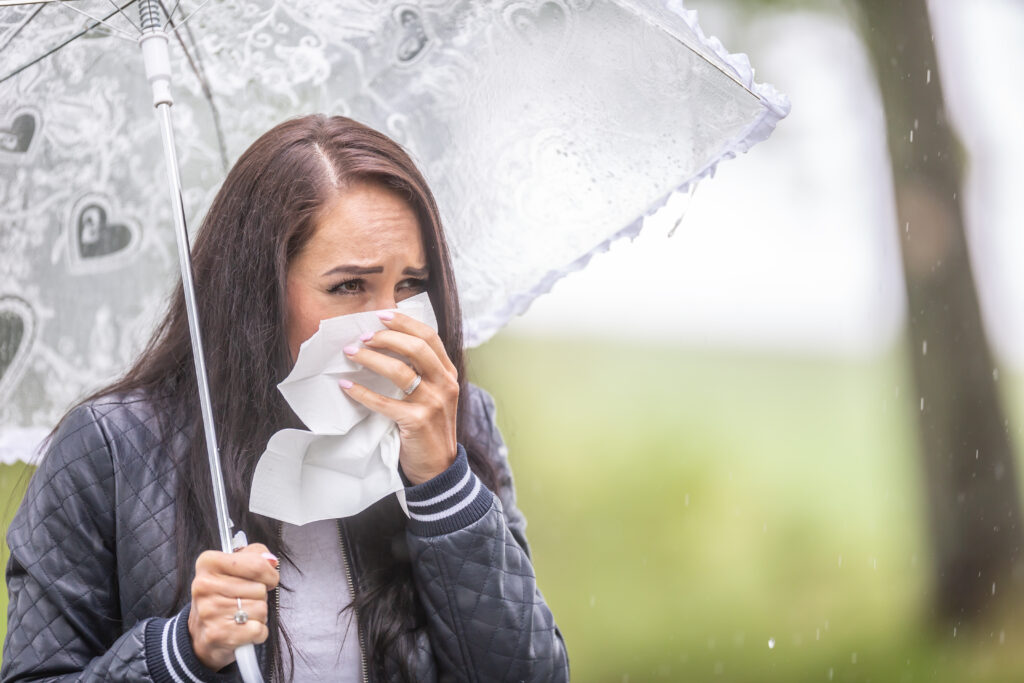Monsoon related illnesses are common during the rainy season. These illnesses can affect people of all ages, especially in places like India where heavy rains are frequent. Because the monsoon brings more water and humidity, it creates a perfect environment for germs to grow. As a result, knowing about monsoon related illnesses helps you stay safe and healthy. In this blog, you will learn about the symptoms, causes, prevention, and treatment of these diseases. You will also find useful monsoon health tips and answers to common questions.
Common Monsoon Related Illnesses
During the rainy season, several illnesses become more common. Below are some of the most frequent monsoon diseases:
Dengue Fever: This illness spreads through mosquito bites. It can cause high fever, pain, and rashes.
Malaria: Like dengue, malaria is also spread by mosquitoes. It leads to fever, chills, and body aches.
Chikungunya: Mosquitoes spread this disease too. It causes joint pain, fever, and swelling.
Leptospirosis: This bacterial infection spreads through dirty water. It can cause fever, muscle pain, and headaches.
Typhoid: Typhoid spreads through contaminated food and water. It leads to high fever, weakness, and stomach pain.
Viral Fever: Many viruses thrive in wet weather. They can cause fever, cough, and sore throat.
Cholera: This illness spreads through unsafe water. It causes severe diarrhea and dehydration.
Common Cold and Flu: These are more frequent during the monsoon due to sudden weather changes.
Symptoms to Watch For
It is important to notice early signs of illness during the monsoon. Early treatment can prevent complications. Look out for these symptoms:
High fever or chills
Body aches or joint pain
Headache
Nausea or vomiting
Diarrhea or stomach pain
Rashes or red spots on the skin
Cough, sore throat, or runny nose
Weakness or tiredness
However, some symptoms may seem mild at first. If you notice any of these signs, it is best to monitor your health closely.
Causes and Risk Factors
Monsoon related illnesses have several causes. Most of them spread through water, food, or insect bites. Here are the main reasons:
Stagnant Water: Mosquitoes breed in still water, increasing the risk of dengue and malaria.
Contaminated Food and Water: Heavy rains can pollute water sources, leading to diseases like typhoid and cholera.
Poor Hygiene: Wet weather can make it harder to keep things clean, which helps germs spread.
Weakened Immunity: Sudden weather changes can lower your body’s defenses.
People living in crowded areas or places with poor drainage face higher risks. In India, monsoon illnesses are more common in cities with waterlogging.
Diagnosis and When to See a Doctor
Early diagnosis helps prevent serious problems. If you have a high fever, severe pain, or lasting stomach issues, you should see a doctor. Sometimes, simple blood or urine tests can help find the cause. Doctors may also ask about your symptoms and recent travel. If you notice warning signs like trouble breathing, confusion, or dehydration, seek medical help right away.
Effective Treatment Options
Treatment depends on the illness. For most viral fevers, rest and fluids are enough. However, some diseases need special care. Here are common treatments:
Dengue and Chikungunya: Doctors may suggest rest, fluids, and pain relief. Avoid taking aspirin unless advised.
Malaria: Specific medicines are used to kill the malaria parasite.
Leptospirosis and Typhoid: Antibiotics help treat these bacterial infections.
Cholera: Rehydration with fluids and salts is very important.
Common Cold and Flu: Rest, fluids, and over-the-counter medicines can help.
Always follow your doctor’s advice. Do not self-medicate, as some medicines can make things worse.
Prevention Tips and Healthy Lifestyle Guidance
Staying healthy during the monsoon is possible with simple steps. Here are some monsoon diseases prevention tips:
Keep your surroundings clean and dry.
Remove stagnant water to stop mosquito breeding.
Use mosquito nets and repellents, especially at night.
Drink only boiled or filtered water.
Wash hands before eating and after using the toilet.
Eat freshly cooked food. Avoid street food during the rainy season.
Wear light, full-sleeved clothes to avoid mosquito bites.
Stay indoors during heavy rains if possible.
Keep first-aid supplies handy.
Additionally, a healthy diet and regular exercise can boost your immunity. These simple monsoon health tips can help you avoid illness during the rainy season.
Frequently Asked Questions (FAQs)
Which diseases are most common during the monsoon?
Dengue, malaria, typhoid, and viral fevers are most common in the rainy season.
How can I avoid illness during the monsoon?
Keep your home clean, drink safe water, and use mosquito protection.
When should I see a doctor?
If you have high fever, severe pain, or lasting stomach problems, visit a doctor soon.
Are children more at risk?
Yes, children and older adults may get sick more easily during the monsoon.
Can I treat monsoon illnesses at home?
Mild symptoms may improve with rest and fluids, but always consult a doctor for proper care.
For more details, you can visit trusted sources like the World Health Organization (WHO) or the Centers for Disease Control and Prevention (CDC).
Consult a healthcare professional for personalized advice on monsoon related illnesses.

